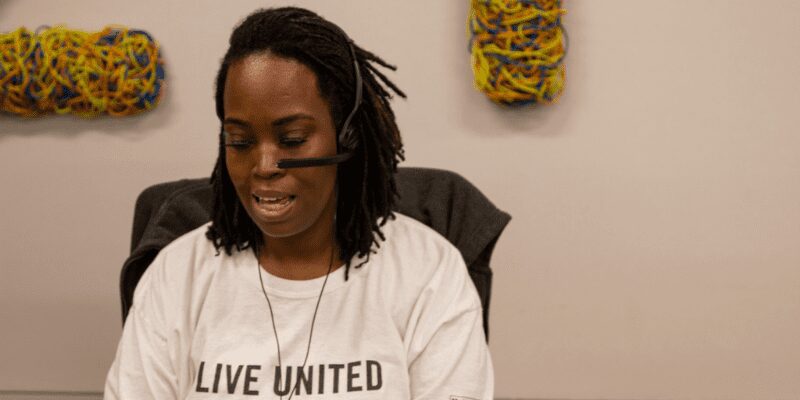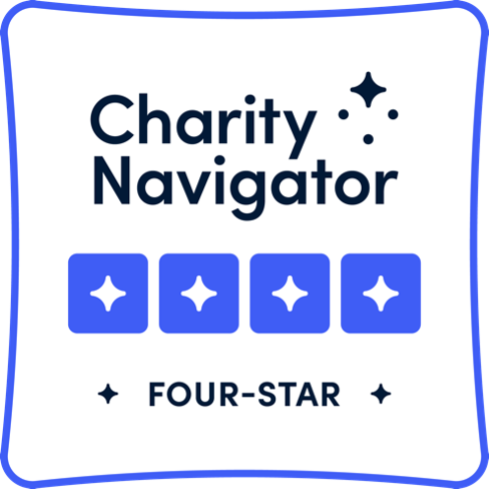This story was published on Feb. 7, 2021, and it has been updated as of March 30, 2021
LaKeta’s phone rings, and she puts on her headset and adjusts her microphone before clicking on the screen of her monitor to answer.
The woman on the other end tells LaKeta, a United Way of Greater Atlanta 211 Community Connection Specialist, she had been out of work because of the COVID-19 pandemic. The woman had gone to a doctor recently for a check-up. The doctor told her she had cancer.
She was young and she didn’t know what to do next. She wasn’t sure how she could provide for herself, let alone her children.
LaKeta kept the woman on the phone, she provided her with resources she could access in her community. She helped her find access to food, finances and medical help, if needed. But LaKeta said she felt like the woman needed something else, too.
She just needed someone to talk to — someone who could relate to her experience. She needed encouragement.
“We got deep into the call, and it was about 45 minutes long,” she says with a laugh. “I had given her some referrals, and then we just talked for a while. I offered her some words of encouragement. She had children, and so I told her that whenever she felt like she could go no longer to just look at her babies and keep going.”
The phone call stuck with LaKeta because she remembers when she had to make a similar one.
A few years prior, LaKeta’s father needed a double lung transplant. She had cared for him in the days leading up to that surgery, but the illness meant her father needed to be moved into her home for round-the-clock care. He moved in with LaKeta, her husband and young child, who she had been homeschooling.
It was one of the most difficult times of her life, she says, and in the midst of all of this, her family lost their home.
It was a grind daily — calling shelters, which she says she couldn’t find a spot in because she needed to move her entirely family, food pantries and health care providers.
She would do anything to take care of those she loves most. But she couldn’t do it on her own.
The hardest part can sometimes be that first call to help, she says.
“That’s the roadblock that a lot of people run into,” LaKeta says. “It takes humbling yourself.”
LaKeta, an Atlanta native, called United Way’s 211 where she was connected to resources in her area. The 211 Contact Center is an information and referral system connecting people to essential services they need—access to food, help paying electrical bills, access to shelter and clothing.
Each call to 211 is filtered to a trained specialist who provides information on services that align to a person’s specific needs. 211 resources are available 24 hours a day to offer assistance, with agents taking calls during the week from 8 a.m. to 7 p.m.
211 gave LaKeta resources she needed during one of the most difficult moments in her life. It would eventually give her something else, though.
In late October 2017, LaKeta took a job working as a 211 Community Connection Specialist. She went through weeks of training — agents receive a four-week training that takes them through the taxonomy code and all the different verbiage agents use, they have customer service training, call flow quality training and more.
Eventually she moved onto the floor to train with senior agents before being handed off to take her first call on her own.
“You train with them, and they don’t let go of your hand until you have all the tools you need to in order to succeed,” she said. “You’re well prepared, but you may get that nervousness on a live call. But after that first call you get through those nerves and it’s a breeze.”
She says she always tries to make a connection with the person on the other side of that call.
“With every call I get, I try to put myself in their shoes,” she says. “It’s easy for me to do that and get into that mind frame because whatever it is that someone is going to call with, I’ve likely dealt with in some way. You just try to keep that mindset and understand that this is someone’s crisis. They are people, too, and you need to treat them as such.”
Nothing could’ve prepared us for the crisis we’ve faced over the past 11 months, though.
About two weeks into March 2020, cities across the United States began shutting down restaurants, bars, gyms and schools in an attempt to stem the spread of the novel coronavirus. The infectious disease, COVID-19, has infected millions, killed hundreds of thousands and has contributed to mass unemployment across Greater Atlanta and the United States.
With multiple COVID-19 vaccines now in the works, and the distribution of those vaccines yet to be determined, there’s still a large amount of stress put on nonprofits, the private sector and government as we look to provide aid to those families in need.
But throughout this health and economic crisis, people like LaKeta continue work to make an impact on lives in Greater Atlanta because we know that every person whose life United Way can help improve will go on to change the lives of countless others. This work is important and work this important is never over. But united, we’ll achieve more.
The need has grown, and the calls keep pouring in to 211, but LaKeta says she’s taking the opportunity to offer help and encouragement.
“I love to just sit and take my calls,” she says. “The need is greater, and the call volume is high, but it’s not a stressor to me. The only stressor to me is that I can’t save the world.
“But what I try to do personally is give words and hope for encouragement, and that goes a long way — definitely during this pandemic. Giving them a little hope in there, letting them know that it’s OK and will all work out, that has brought me a long way. Why not try to pass it on to someone else?”
The job can be difficult — it can be emotionally demanding. But LaKeta says she takes time to meditate and focus on the positive things in her life. And she’s also thankful for her “211 Family.”
“I have made personal connections with each one of my colleagues, and we all just motivate each other,” she says. “The leaders in the department actually lead, and I never feel alone or bombarded with work.
“We are a diverse family, learn from one another and are truly caring of each other.”
When we Unite for More, everyone can climb. Work this important is never over or done alone. Can children, families and Greater Atlanta communities count on you? Unite for more today.





